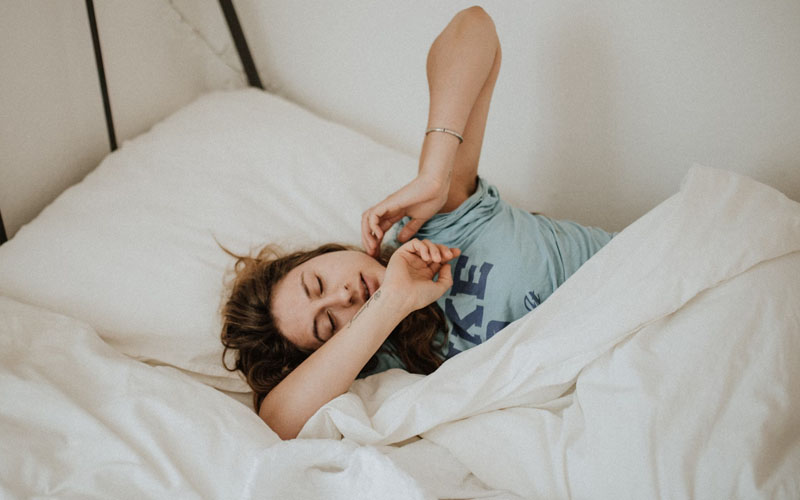Sleep is essential for our well-being, yet so many of us struggle to get enough rest. A leading culprit? The ubiquitous smartphone. While these devices keep us connected and entertained, their overuse—especially at bedtime—can significantly disrupt sleep. The good news is that small changes in how you use your smartphone can lead to significant improvements in the quality of your sleep. Here are five simple yet effective strategies to help you reduce smartphone use and catch those Zs.
1. Turn Off Notifications
Ever been jolted awake by the ping of a late-night email or a friend’s meme notification? Disruptive alerts are among the biggest barriers to a restful night’s sleep. Our brains are wired to respond to these sounds, keeping us engaged when we should be winding down.
The fix is simple—mute your notifications before bedtime. Most smartphones offer “Do Not Disturb” or “Focus” modes that automatically silence notifications during designated hours. For example, a study from 2018 found that silencing notifications improved people’s focus and mental well-being throughout the day, which can extend to better relaxation at night.
Pro tip: Try scheduling your camera roll or email updates to pause overnight so that nothing tempts you before the morning.
ADVERTISEMENT
2. Set a Tech-Free Bedroom Rule
If your smartphone doubles as your alarm clock, it might feel impossible to banish it from the bedroom—but this move could be key to better rest. Smartphones emit blue light that delays the release of melatonin, the hormone that aids sleep. Additionally, the temptation to endlessly scroll keeps your brain active rather than getting it into “wind-down” mode.
Create a sleep-friendly oasis by designating your bedroom a tech-free zone. Instead of relying on your phone, invest in an analog alarm clock to wake you up. Charge your device outside the bedroom door or in the living room to eliminate temptation. Studies show that separating yourself from your phone at night can dramatically reduce nighttime tech use and improve sleep quality.
Pro tip: Keep a small stack of books by your bedside to replace those scrolling habits with some light reading instead.
3. Establish a Bedtime Routine
Routine is crucial for signaling to your body when it’s time to sleep—and consistent routines that avoid screen use are particularly beneficial. Scrolling through social media or answering emails in bed tricks your brain into staying alert, making it harder to drift off.
Swap your evening screen time with calming activities like reading a book, meditating, or sipping a warm, caffeine-free tea. The Sleep Foundation suggests maintaining a consistent bedtime schedule and avoiding screens at least 30 minutes before bed. Pair this wind-down period with soothing rituals like using lavender-scented candles or a relaxing playlist to train your brain to associate these habits with sleep.
Pro tip: Download printed crossword puzzles or sudoku to engage your mind in a non-digital way before bed.
4. Utilize Night Mode
Completely avoiding your phone before bed isn’t always realistic, especially if you rely on it for evening tasks. But you can minimize its impact by using the built-in “Night Mode” or “Blue Light Filter” available on most devices. These settings reduce blue light exposure, which decreases the suppression of melatonin production.
According to a 2017 Harvard study, reducing blue light in the evening can significantly improve your sleep duration and quality. To activate this feature, head to your settings and schedule Night Mode to kick in automatically at sunset. This small adjustment can make a surprisingly big difference in how quickly you fall—and stay—asleep.
Pro tip: Pair Night Mode with lowering your screen brightness to reduce eye strain and help your mind wind down even more effectively.
5. Monitor and Limit Screen Time
We all know how easy it is to lose track of time watching endless TikToks or scrolling through Instagram reels. That’s why tracking your screen use can make a huge difference. Both Android and iOS devices offer built-in tools like “Screen Time” or “Digital Wellbeing” to monitor usage and set app time limits.
Use these tools to establish clear boundaries—limit your scrolling time in the evening and set app lockouts for social media after a specific hour. According to research, implementing these restrictions can not only reduce nighttime phone distractions but also lead to better overall sleep hygiene.
Pro tip: Start small by reducing screen use 10 minutes earlier each night. Over time, you’ll find it easier to disconnect.
Reclaim Your Sleep Tonight
Smartphone use doesn’t have to sabotage your sleep. By implementing even one or two of these strategies, you can take control of your nighttime habits and set the stage for a restful night. Turn off pesky notifications, set a tech-free rule, and give your eyes a break with Night Mode—you’ll be amazed by how much calmer and refreshed you’ll feel.
ADVERTISEMENT
Better sleep starts with better habits. Make your changes tonight and wake up to a happier, more energized tomorrow.
ADVERTISEMENT


